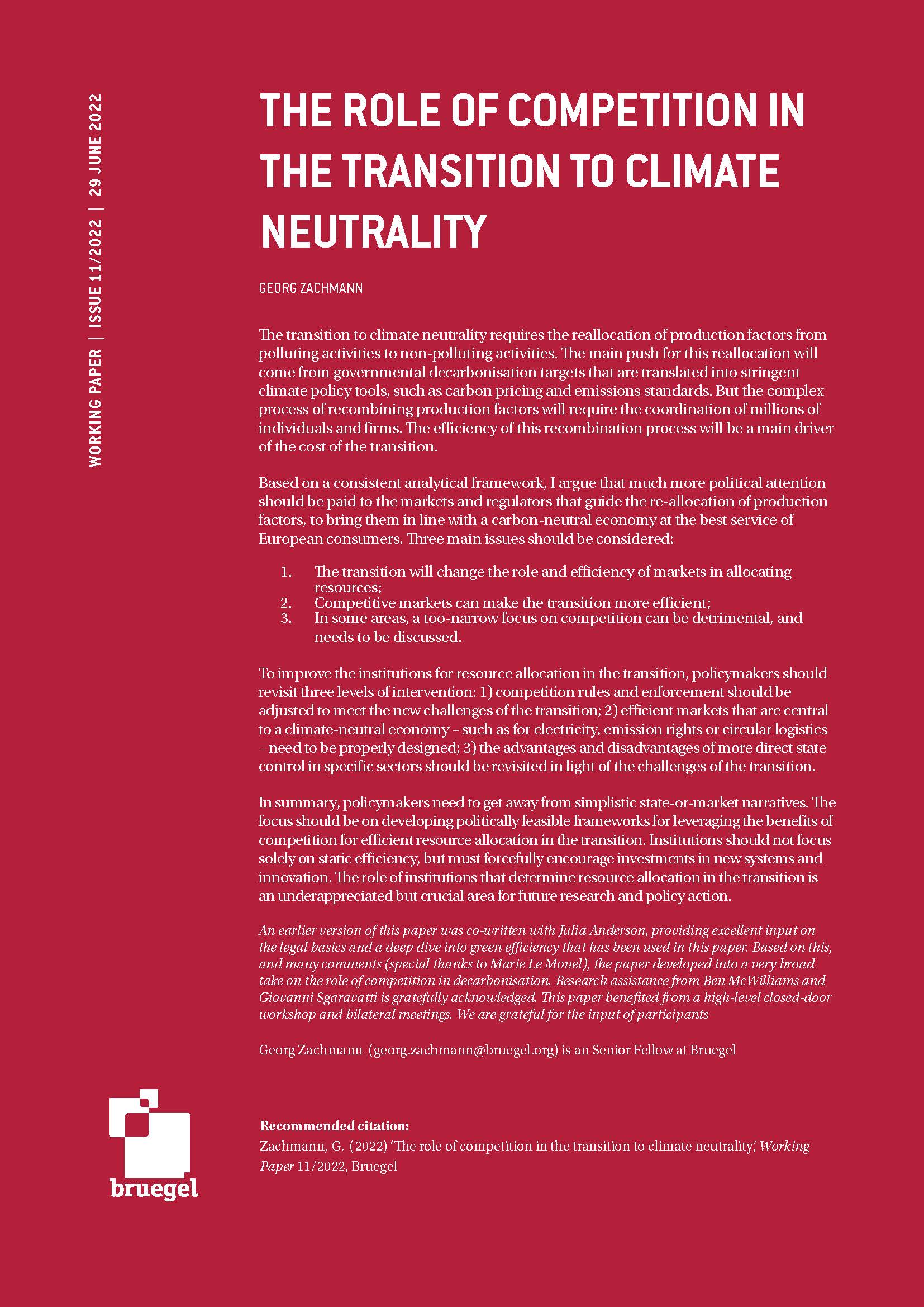Working Paper
The role of competition in the transition to climate neutrality
Consumers need to reduce their carbon footprint by replacing carbon-intensive by carbon-neutral consumption, which implies buying the appliances that allow them to do so. Workers and capital need to move from brown to green sectors.
An earlier version of this paper was co-written with Julia Anderson, providing excellent input on the legal basics and a deep dive into green efficiency that has been used in this paper. Based on this, and many comments (special thanks to Marie Le Mouel), the paper developed into a very broad take on the role of competition in decarbonisation. Research assistance from Ben McWilliams and Giovanni Sgaravatti is gratefully acknowledged. This paper benefited from a high-level closed-door workshop and bilateral meetings. We are grateful for the input of participants.
The transition to climate neutrality requires the reallocation of production factors from polluting activities to non-polluting activities. The main push for this reallocation will come from governmental decarbonisation targets that are translated into stringent climate policy tools, such as carbon pricing and emissions standards. But the complex process of recombining production factors will require the coordination of millions of individuals and firms. The efficiency of this recombination process will be a main driver of the cost of the transition.
Based on a consistent analytical framework, I argue that much more political attention should be paid to the markets and regulators that guide the re-allocation of production factors, to bring them in line with a carbon-neutral economy at the best service of European consumers. Three main issues should be considered:
1. The transition will change the role and efficiency of markets in allocating resources;
2. Competitive markets can make the transition more efficient;
3. In some areas, a too-narrow focus on competition can be detrimental, and needs to be discussed.
To improve the institutions for resource allocation in the transition, policymakers should revisit three levels of intervention: 1) competition rules and enforcement should be adjusted to meet the new challenges of the transition; 2) efficient markets that are central to a climate-neutral economy – such as for electricity, emission rights or circular logistics – need to be properly designed; 3) the advantages and disadvantages of more direct state control in specific sectors should be revisited in light of the challenges of the transition.
In summary, policymakers need to get away from simplistic state-or-market narratives. The focus should be on developing politically feasible frameworks for leveraging the benefits of competition for efficient resource allocation in the transition. Institutions should not focus solely on static efficiency, but must forcefully encourage investments in new systems and innovation. The role of institutions that determine resource allocation in the transition is an underappreciated but crucial area for future research and policy action.
Recommended citation:
Zachmann, G. (2022) ‘The role of competition in the transition to climate neutrality’, Working Paper 11/2022, Bruegel











